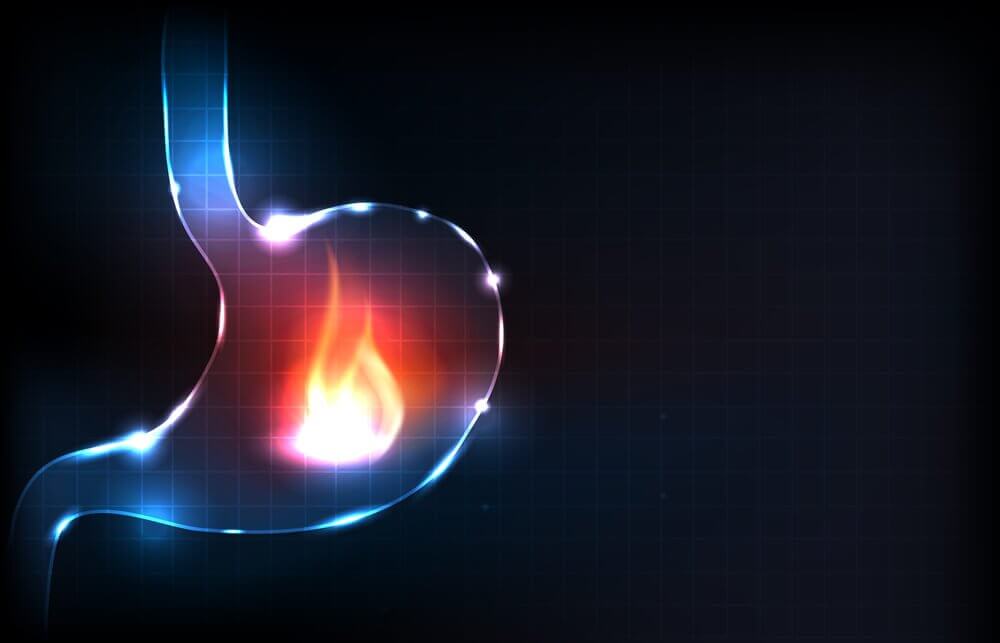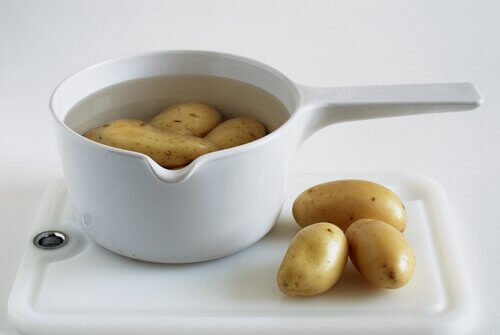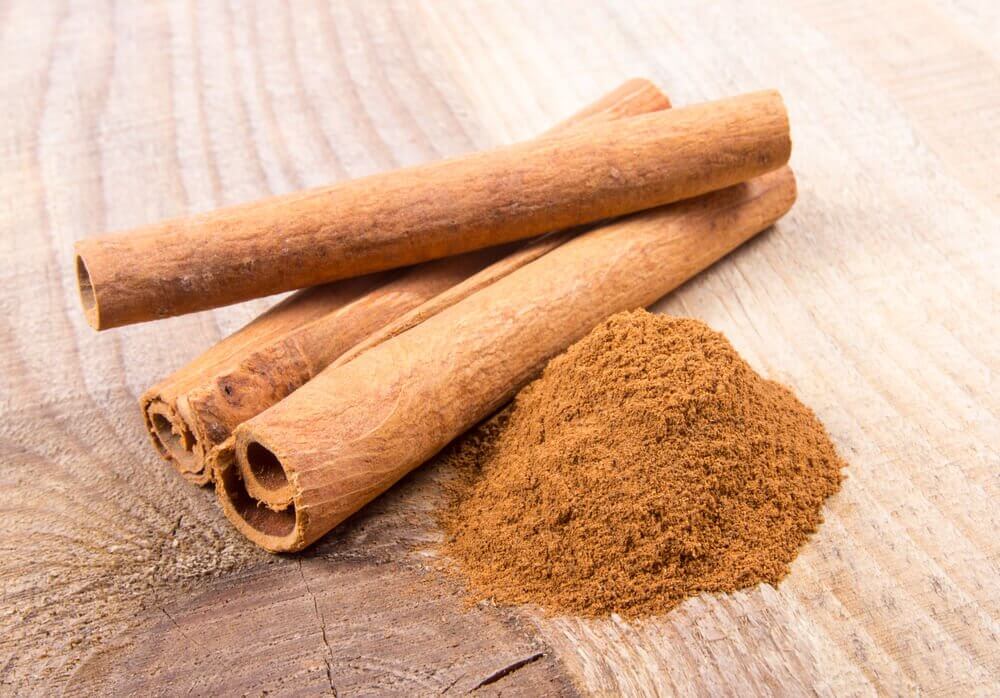Seven Traditional Heartburn Remedies

Acid indigestion is a real pain, and it definitely can affect your daily routine. That’s why it’s essential to know that there are many natural, traditional remedies for heartburn that can neutralize the stomach acid produced in the esophagus.
In this article, we’ll introduce you to five of them so that you can strengthen your arsenal.
What is Heartburn?

Heartburn is a sensation of discomfort or burning in the lower chest. It happens because the acid contained in the stomach, which has several strands of intestinal flora, is present. When the acid returns through the esophagus, it causes irritation.
Although the discomfort doesn’t last a long time, there are some cases that do require medical attention. If it’s accompanied by other symptoms, heartburn may require stronger treatment and be continuously evaluated. This is because the reflux of acidity could cause irregularities in the digestive system, causing gastroesophageal problems.
Also, it’s recommended to evaluate the kind of pain so as not to confuse it with other pains in the chest area. The latter could be symptoms of a heart attack. In order to do a good evaluation, you must clearly identify what heartburn feels like.
If you’re having any doubts, see a doctor.
Remedies for Heartburn
Generally, doctors will perform tests to rule out anything that produces acidity from the diet. Similarly, to determine what’s casing the discomfort, check to see if you have any abdominal swelling, constant belching, or any other problem that may arise from the stomach.
However, these symptoms are also quite prevalent in pregnant women. If you’re pregnant, don’t take anything without consulting your MD.
However, if you know it’s heartburn, traditional remedies are very useful to neutralize heartburn.
Seven Traditional Remedies for Heartburn
It’s important to keep in mind that, although traditional remedies for heartburn are very effective, not all have the same effects among people. The results vary depending on the individual characteristics of each person.
Discover: 12 symptoms of damaged intestinal flora
1. Aloe vera, cucumber, and apple blend
This combination is quite beneficial for the intestinal tract. It lessens the irritation. It also neutralizes the production of acid in the stomach, which prevents reflux.
Ingredients
- 1 cucumber
- 1 green apple
- ½ cup of aloe vera gel
- 2 cups of water
Directions
- Chop the cucumber and green apple into small pieces.
- Mix in the blender with the water and aloe vera.
- Then, blend it all well and drink it after a meal.
- Drink one glass every day.
2. Potato water

Potatoes contain a large amount of starch, antioxidants, and fibers, and they help relieve heartburn. This property of the potatoes makes it so that the pH of the stomach is regulated and the esophagus is not so weak.
Ingredients
- 2 potatoes
- 2 cups of water
Directions
- Wash the potatoes.
- Then, juice them in an extractor.
- When you have the juice, mix it with a little water.
- Drink it whenever you feel heartburn discomfort.
Or:
- Slice the previously washed potatoes.
- Place them inside a container and cover it with drinking water.
- Let it sit overnight.
- Drink the liquid whenever you feel heartburn discomfort.
3. Papaya juice and flax seeds
Thanks to its anti-inflammatory compounds and enzymes, this preparation of papaya and flax seed can control the acidity in the stomach. It’s also highly nutritious. And as if that wasn’t enough, it also serves as a stomach acid neutralizer and decreases its passage through the esophagus.
Ingredients
- 1 papaya
- 1 tbsp flax seeds
- Honey to taste
Directions
- Blend all ingredients well.
- Serve and drink.
4. Ginger
Ginger has an alkaline effect that controls acidic compounds, and it stabilizes the pH of the stomach. This reduces acidity.
Ingredients
- 4 regular sized ginger rhizomes, sliced
- 2 cups of water
Directions
- Firstly, bring the water to a boil.
- Second, add the ginger, and allow it to infuse for 20 minutes.
- Drink a glass once a day before bedtime.
Discover: Alkaline foods and your body
5. Cinnamon

Cinnamon is great for stomach problems, and in addition, it helps with digestion by preventing the production of gases, an acidic environment, and inflammation.
Ingredients
- 2 tbsp cinnamon powder
- 1 cup of water
Directions
- First, bring the water to a boil
- Second, add the cinnamon and let it infuse for a few minutes.
- Then, drink a glass.
6. Bananas with milk
Bananas are one of the most recommended fruits to treat various stomach conditions.
Ingredients
- 5 bananas
- ½ glass of water
- ½ glass of milk
Directions
- First, cut the bananas into small pieces
- Then, blend them with water and milk
- When you have a homogeneous mixture, let cool and serve.
7. Pineapple juice
Pineapple is a tropical fruit loaded with liquid and flavor, and so it stands out for its diuretic properties and digestive enzymes.
Ingredients
- 1 pineapple, peeled
- 2 cups of water
Directions
- First, cut the pineapple into pieces and blend it with the water.
- Then, serve in a glass.
It’s also recommended that you avoid heavy food. Similarly, you should avoid excess meat, condiments, tobacco, coffee, and candy.
In addition, you must keep a balanced diet, with fewer fats and oils. Increase your intake of fruit, dairy, whole grain cereals such as buckwheat and oats.
All cited sources were thoroughly reviewed by our team to ensure their quality, reliability, currency, and validity. The bibliography of this article was considered reliable and of academic or scientific accuracy.
- Radha, M. H., & Laxmipriya, N. P. (2015). Evaluation of biological properties and clinical effectiveness of Aloe vera: A systematic review. Journal of Traditional and Complementary Medicine. https://doi.org/10.1016/j.jtcme.2014.10.006
- Rajeswari, R., Umadevi, M., Rahale, C. S., Selvavenkadesh, S., Kumar, K. P. S., & Bhowmik, D. (2012). Aloe vera: The Miracle Plant Its Medicinal and Traditional Uses in India. Journal of Pharmacognosy and Phytochemistry.
- Andre, C. M., Legay, S., Iammarino, C., Ziebel, J., Guignard, C., Larondelle, Y., … Miranda, L. M. (2014). The Potato in the Human Diet: a Complex Matrix with Potential Health Benefits. Potato Research. https://doi.org/10.1007/s11540-015-9287-3
- Mishra, S., Monro, J., & Hedderley, D. (2008). Effect of processing on slowly digestible starch and resistant starch in potato. Starch/Staerke. https://doi.org/10.1002/star.200800209
- Muss, C., Mosgoeller, W., & Endler, T. (2013). Papaya preparation (Caricol®) in digestive disorders. Neuro Endocrinology Letters.
- Okeniyi, J. A. O., Ogunlesi, T. A., Oyelami, O. A., & Adeyemi, L. A. (2007). Effectiveness of Dried Carica papaya Seeds Against Human Intestinal Parasitosis: A Pilot Study . Journal of Medicinal Food. https://doi.org/10.1089/jmf.2005.065
- Mashhadi, N. S., Ghiasvand, R., Askari, G., Hariri, M., Darvishi, L., & Mofid, M. R. (2013). Anti-oxidative and anti-inflammatory effects of ginger in health and physical activity: Review of current evidence. International Journal of Preventive Medicine.
- Haniadka, R., Saldanha, E., Sunita, V., Palatty, P. L., Fayad, R., & Baliga, M. S. (2013). A review of the gastroprotective effects of ginger (Zingiber officinale Roscoe). Food and Function. https://doi.org/10.1039/c3fo30337c
- Shen, Y., Jia, L. N., Honma, N., Hosono, T., Ariga, T., & Seki, T. (2012). Beneficial effects of cinnamon on the metabolic syndrome, inflammation, and pain, and mechanisms underlying these effects-a review. Journal of Traditional and Complementary Medicine. https://doi.org/10.1016/S2225-4110(16)30067-0
- NESELLO, L. A. N., CECHINEL FILHO, V., CAMPOS, A., ANDRADE, S. F. de, & ROSA, R. L. da. (2017). SCREENING OF WILD FRUIT TREES WITH GASTROPROTECTIVE ACTIVITY IN DIFFERENT EXPERIMENTAL MODELS. Arquivos de Gastroenterologia. https://doi.org/10.1590/s0004-2803.201700000-13
- Pavan, R., Jain, S., Shraddha, & Kumar, A. (2012). Properties and Therapeutic Application of Bromelain: A Review. Biotechnology Research International. https://doi.org/10.1155/2012/976203
This text is provided for informational purposes only and does not replace consultation with a professional. If in doubt, consult your specialist.








